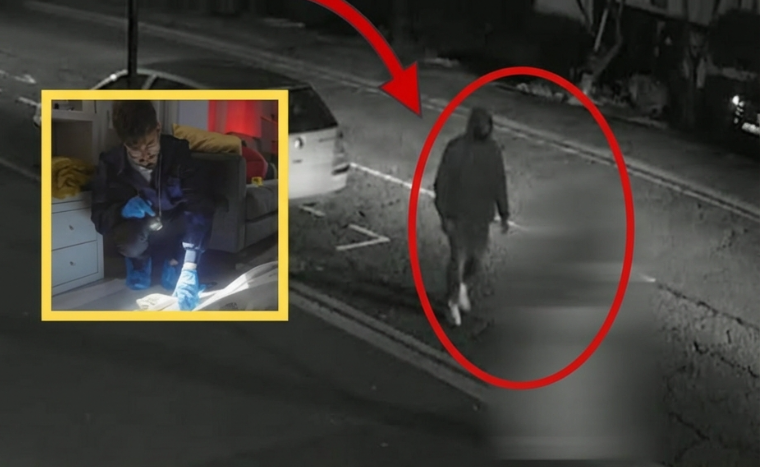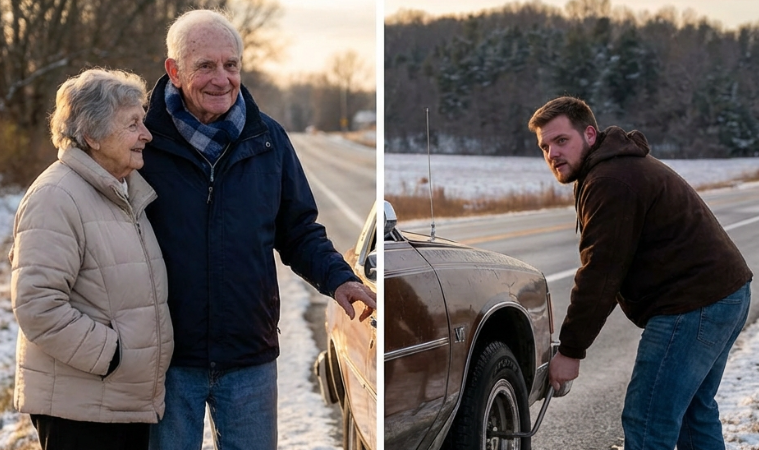I’ve always considered myself a trusting parent. I rarely snoop or hover, and I like to believe my daughter knows that.
Still, trust sometimes gets challenged— like that Sunday afternoon when I heard laughter and hushed voices coming from behind her closed bedroom door.
My daughter is fourteen, and her boyfriend—also fourteen— is polite, gentle, and, for a teenager, surprisingly respectful.
He greets us every time he arrives, slips off his shoes at the door, and thanks me when he heads home.
Every Sunday, he visits, and the two of them spend hours in her room. I remind myself they’re hanging out, but when the giggles get quieter and the door stays firmly shut, my imagination starts to wander.
That day, I tried to stay relaxed and give her the privacy I always promise her.
But then a little voice in my head started asking, What if? What if something’s happening that I should know about? What if I’m being too trusting?
Before I realized it, I was slowly walking down the hallway.
And when I reached her door, I gently nudged it open a sliver.
Soft music was playing in the background, and there they were, cross-legged on the rug, surrounded by notebooks, highlighters, and math problems.
She was explaining something, so concentrated that she barely spotted someone entering the room.
Her boyfriend was nodding, completely focused on my daughter’s math explanations. The plate of cookies she took to the room was at her desk, untouched.
She looked up and smiled, a little confused. “Mom? Do you need something?”
“Oh, I wanted to see if you wanted more cookies.”
“We’re good, thanks!” she said, and turned to what she was doing.
I closed the door and leaned against the wall, half embarrassed and half relieved.
It was then that I realized how often parents imagine the worst when the truth is beautifully simple. There was no secret, two kids helping each other learn.
The hallway smelled faintly of warm chocolate chip cookies— the ones I’d baked earlier, still cooling on the kitchen counter. I stood there, hand lingering on the doorknob, heart racing from a worry that now felt foolish.
Through the thin wood, I could hear her voice again— clear, patient, breaking down fractions like a teacher twice her age. “See, you multiply the denominators first, then simplify…”
He murmured agreement, pen scratching paper. No whispers. No awkward silences. No rustle of anything but notebook pages.
I smiled despite myself. My daughter— the girl who once cried over long division— now guiding someone else through the maze.
Later that evening, after he’d left with a polite wave and a “Thank you, Mrs. Thompson,” she bounded into the kitchen, cheeks flushed with triumph.
“Mom, guess what? He got an A on his quiz retake! Because of the way I explained the order of operations!”
She beamed, eyes bright as birthday candles. I pulled her into a hug, breathing in the scent of her strawberry shampoo.
“I’m proud of you,” I said. “Not for the grade— for the kindness. For the patience.”
She shrugged, but her smile widened. “It’s easy when you care.”
That night, I lay awake thinking about the door I’d almost opened too wide. About the trust I’d almost broken. About the fine line parents walk between protection and intrusion.
I remembered my own mother peeking through cracks, listening at keyholes, certain that every closed door hid disaster. I’d sworn I’d be different. More open. More believing.
Yet there I was, inches from becoming her.
The next Sunday, I baked double the cookies. Set out a pitcher of lemonade. Knocked once— lightly— before pushing the door open with my elbow.
They looked up from their algebra fortress, surrounded by graph paper and colored pencils.
“Study break?” I offered.
She grinned. “You’re the best.”
He nodded shyly. “Thank you, ma’am.”
I left the tray and backed out slowly, door ajar this time— not from suspicion, but from pride.
Weeks turned into months. Sundays became tradition. Math gave way to history flashcards, then English essays, then college entrance prep.
I’d pass by sometimes, catch glimpses: her pointing at a timeline, him quizzing her on vocabulary, both laughing when someone mixed up “affect” and “effect.”
The cookies disappeared faster. The laughter grew louder. The door stayed cracked open— an unspoken invitation to witness goodness unfolding.
One afternoon, I found a note taped to my bedroom mirror. Her handwriting— loopy, confident, adorned with tiny doodled stars.
Mom, Thanks for trusting me. I know it’s not always easy. I’m lucky to have a mom who knocks instead of barges, who bakes instead of bans, who believes in me even when I’m behind a closed door. I love you. – Your favorite (and only) daughter 😉
I traced the words with my finger, tears pricking unexpectedly.
Parenting, I’ve learned, isn’t about knowing everything. It’s about choosing to believe in the light you’ve raised— even when shadows tempt you to doubt.
It’s about baking cookies instead of building barriers.
It’s about trusting that the laughter behind the door is exactly what it seems: two young hearts growing kinder, smarter, braver— together.
Now, when friends confess their own worries— “What if they’re… you know…”— I smile and tell them about the Sunday I almost opened the door too far.
I tell them about the math problems and the untouched cookies and the girl who taught a boy to multiply while teaching her mother to trust.
I tell them: Close your eyes. Listen. Believe.
The truth is usually simpler and far more beautiful than fear ever lets us imagine.






